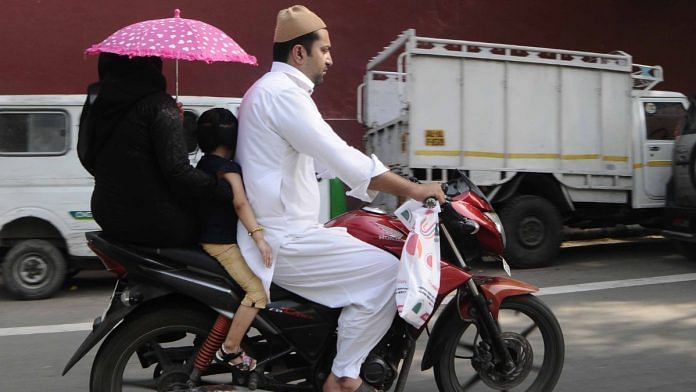In a pioneering move, the Assam government has unveiled a financial assistance initiative tailored for rural women entrepreneurs. However, the programme comes with distinctive conditions, chief among them being a stipulation on the maximum number of children these women can have. Eligibility for the scheme is contingent on adherence to specific family size limits, with women in the general and Other Backward Classes categories mandated to restrict their families to three children. Meanwhile, women hailing from Scheduled Tribes and Scheduled Castes have a slightly higher allowance, set at four children. The government has meticulously crafted approximately 145 diverse business plans, offering a plethora of options for eligible individuals to choose from to receive the grant.
The introduction of this policy has reignited a fervent debate on the critical issues of population control and potential discrimination. The ongoing discourse touches upon the delicate balance between individual reproductive freedom and the government’s responsibility to ensure the overall welfare of its citizens and the nation. Those opposing population control measures argue vehemently against what they perceive as governmental interference and the restriction of reproductive rights. They contend that policies linking incentives or penalties to the number of children a family can amount to coercion and a violation of individual rights. While these critics emphasise the importance of personal liberties, they often overlook the government’s duty to enact policies that contribute to the well-being of society and foster a just environment. It’s the same critics who put a spotlight on the government’s role in managing unemployment rates and call for increased investments in social welfare schemes.
However achieving a true welfare state requires a dual commitment— not just from governmental bodies but also from citizens, who play a pivotal role by adhering to laws and actively participating in the collective responsibility for societal well-being. It is worth noting that, unlike China’s forceful implementation of population control, India proposes a two-child policy with a combination of incentives and disincentives, aiming not for coercion but the promotion of habits that will be beneficial for families and, in turn, the nation. Despite India approaching near-replacement levels of fertility in 2020, the absolute size of its population is projected to continue increasing until at least 2050.
Also Read: 20 crore Muslims have moved on from Babri Masjid and Ayodhya. Owaisi must as well
Legal equality for Muslims
The discourse also delves into the perceived discrimination against marginalised communities, particularly Muslims, within the framework of government policies. However, this narrative appears to be more driven by political agendas than factual realities. An article in The Indian Express titled “Assam government’s new schemes are about discrimination and communalisation, not justice” asserts that initiatives like the Uniform Civil Code (UCC) and the Mukhyamantri Mahila Udyamita Abhiyaan (MMUA) are rooted in a politics of discrimination against Muslims. As a Pasmanda Muslim, this narrative raises concerns, suggesting that Muslims should be treated differently from other Indian citizens. Growing up, I often wondered why Indian activists and intellectuals have low expectations from the Muslim community, supporting problematic traditions, habits, and mindsets in their desire to be saviours of Muslims. This pattern persists even today, where policies seemingly meant for all citizens are viewed as particularly discriminatory against Muslims. The question arises: On what basis? Is it because of cultural differences or a misalignment of religious values with existing policies? It’s ironic how those pushing for progressive values for the Hindu community can simultaneously argue against their adoption by the Muslim community.
A law rooted in gender equality, beneficial for the well-being of the Hindu community, should undeniably extend its benefits to the Muslim society as well. The UCC, if anything, would usher in legal equality for Muslim women. Similarly, the advantages of family planning, evident in other communities, are equally applicable to Muslims. Having a smaller family facilitates focused attention on children’s upbringing, ensuring a healthier and more educated future. It’s perplexing how some self-claimed ‘Messiahs of Muslims’ fail to recognise these fundamental truths – that Muslims, like anyone else, thrive not in large families but in small, nurturing ones where parents can adequately care for their children.
If the argument posits that Assam’s promotion of two-child policies stems from the belief that the Chief Minister, Himanta Biswa Sarma, is anti-Muslim, then what about governments and leaders that aren’t perceived as anti-Muslim who still endorse similar policies? As early as 1952, just five years after gaining Independence, India became a pioneer by launching a national family planning programme. Over the following decade, this initiative evolved into the largest government-sponsored family planning programme globally. The historical context raises questions about the motivations behind such policies, highlighting that family planning initiatives are not exclusive to governments working as anti-Muslim, but rather have been a part of broader national strategies for decades.
Amana Begam Ansari is a columnist, writer, TV News Panelist. She runs a weekly YouTube show called ‘India This Week by Amana and Khalid’. She tweets @Amana_Ansari. Views are personal.
(Edited by Theres Sudeep)




I loved this article. Muslims of India have had few good leaders and little on offer by those leaders apart from identity politics. In order for them to be as successful and rich as hindus, we need to rise above politicizing good policies and play the freedom of faith card each time there is any positive change in muslim dominated areas.